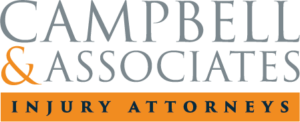5 Essential Lawn Care Health & Safety Tips
Every spring and summer, homeowners are responsible for their property’s lawn care and maintenance. While spending weekends landscaping can be rewarding, weed-killing chemicals can lead to serious herbicide injury, and lawn mower accidents often end in the emergency room.
As a recent CNN News report explains, there are allegations that Monsanto’s Roundup® weed killer contains a cancer-causing chemical, glyphosate, linked to non-Hodgkin’s lymphoma. The United States Consumer Product Safety Commission also reports that roughly 230,000 people are treated in the emergency room each year for injuries related to lawn care equipment.
If you’ve experienced injuries as a result of exposure to weed killer or lawn care equipment, our North Carolina personal injury lawyers at Campbell & Associates can help. Call 704-333-0885 today for a free consultation.
More than ever, committing to these five lawn care safety measures can help you avoid longterm injury.
1. Read Instructions Carefully to Avoid Herbicide Injury
Herbicides easily treat weeds and wild grasses. But it’s critical for homeowners to always read the herbicide label completely. Since the law doesn’t require homeowners to obtain permits or licenses before spraying, many users find themselves risking chemical exposure.
Because many herbicide instruction labels are long, they’re folded like accordions and taped closed. To view the entire label, you must first peel back the tape to see the following:
- Personal protection equipment
- How to use of measuring cups or stir sticks
- How long people or pets should avoid the area
- How to dilute the chemicals
2. Use Personal Protective Equipment
One of the most important cautions on herbicide labels is to avoid drift. That’s why a common rule of thumb is to limit spraying with windspeeds of 10 miles per hour.
But even spraying early in the day or adjusting your nozzle to avoid fine mists won’t fully protect your skin.
Unfortunately, while labels must list personal protective equipment, only these minimum safety requirements are often included:
- Long-sleeve shirt
- Long pants
- Chemical-resistant shoes or boots
- Chemical resistant gloves
- Goggles
Additional clothing you may want to consider:
- Head covering
- Face mask or shield
- Dust mask for powder products
- Disposable jump suits
- Chemical-proof apron for diluting chemicals
Hands are the most commonly contaminated area of the body, while arms and legs usually get the residue from overspray. The most important thing to remember is that protective gear only prevents herbicide injury if chemicals stay on the outside of the material.
If spills, splashes or overspray find their way onto your skin, change clothing immediately and choose materials that offer the best coverage.
3. Choose Organic Weed Killer
Although organic weed killers often have less deadly consequences from exposure, “organic” doesn’t always mean “safe.” Even with some organic herbicide products, poor handling and misuse can put you at risk.
- For example, Acetic Acid (Vinegar) burns the leaves and stems of weeds on contact. In most cases, the EPA must register vinegar labeled as a weed control product. Unlike grocery store vinegar, concentrated solutions are as high as 50% acetic acid and must be diluted before spraying.
- Corn Gluten Meal (CGM) is a fertilizer containing 9% slow-release Nitrogen. It prevents weed seeds from germinating by absorbing surface moisture needed by tiny germinating seeds.
4. Keep Children and Pets Indoors While Mowing
It’s advised that children under the age of 6 remain indoors when the lawn is being moved. Besides the possibility of accidentally running over a child, they are also more susceptible to projectile rocks, golf balls, and small toys.
Lawn mower accidents often result in serious amputation injuries, with victims losing toes in preventable accidents. For this reason, never allow a child on a riding mower with you. In a split second, children can lose their balance and find themselves in the direct path of the mower blades.
For older kids tasked with mowing the lawn, the American Academy of Pediatrics recommends not letting a child under the age of 12 use a push mower or a child under the age of 16 use a riding mower. Take the time to train your child about how to use your mower, how to prepare the lawn, and what to wear as proper protective gear.
5. Safety Precautions to Prevent Lawn Mower Accidents
In order to avoid preventable injuries, take the falling precautions before, during and after you mow:
- Before You Mow: Pick up debris, toys and rocks that could become flying objects. Wear closed-toe shoes and ensure that all children and pets are safely indoors.
- While You Mow: Only use mowers that have an automatic shut-off capability when a handle is released or when the rider is not in the seat. Do not remove the grass catcher or unclog the discharge chute until the mower is completely shut off.
- After You Mow: Turn off the lawn mower completely and make sure to put it out of reach of children while it cools.
Contact a North Carolina Personal Injury Lawyer
Although safety is your best line of defense, lawn mower accidents, even those involving a neighbor, and exposure to Monsanto’s Roundup® weed killer are always possible. If you have been injured by any type of lawn care equipment, a personal injury lawyer at Campbell & Associates can assess your claim.
Our personal injury lawyers are here to help. Do not wait to call (704) 333-0885 in order to schedule a free consultation.


